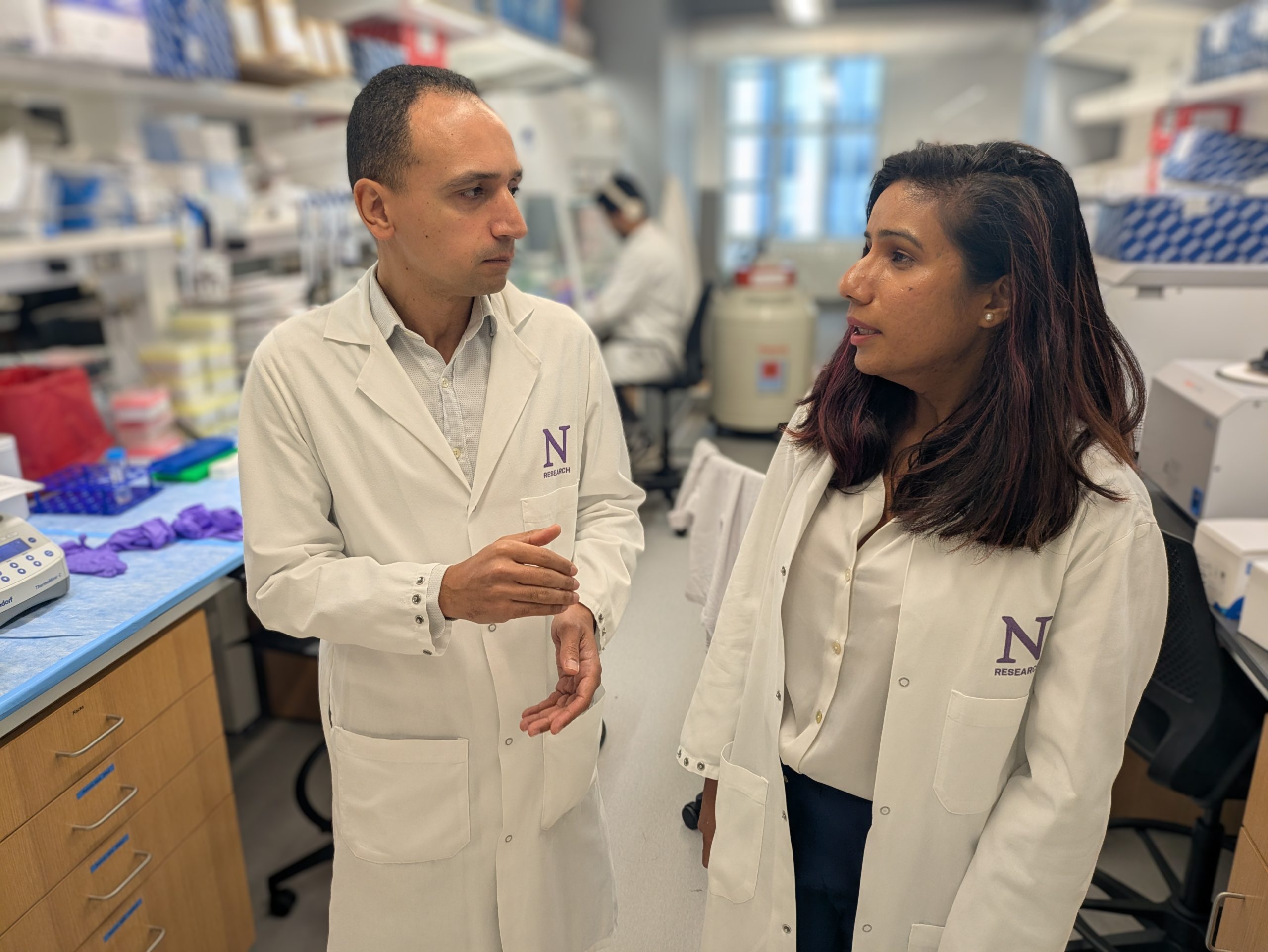The McGaw Medical Center of Northwestern University hosted the second annual Health Equity Week, a series of seven panel discussions highlighting the roots of healthcare disparities and how clinicians and scientists are working to find solutions.
Co-directors for the meeting included Linda Suleiman, MD, ’17 GME, assistant dean of Medical Education, assistant professor of Orthopaedic Surgery and director of diversity and inclusion at McGaw Medical Center, and Oluwateniola Brown, MD, assistant professor of Obstetrics and Gynecology in the Division of Female Pelvic Medicine and Reconstructive Surgery (Urogynecology).
“We are ecstatic to share with you this week of carefully curated topics within health equity,” Suleiman said.
Pharmacoequity

Uneven prescribing practices make it difficult to achieve “pharmacoequity,” according to Utibe Essien, MD, MPP, assistant professor of Medicine at the University of Pittsburgh. Pharmacoequity was defined by Essien as the goal of ensuring individuals have access to the medications needed to manage their health conditions regardless of race or socioeconomic status.
In a study conducted by Essien, investigators found that Black patients with atrial fibrillation were less likely to be given blood thinner medications even after adjusting for clinical and demographic characteristics such as insurance status. Two major drivers of this differential prescribing may be the cost of co-pays and provider bias, requiring new efforts in clinical education and health policy advocacy to remedy, according to Essien.
“If we can place equity on the same level that we have placed quality over the last several decades, we can definitely achieve pharmacoequity,” Essien said.
Disability and Health Equity

The health system in the United States is poorly served to care for people with disabilities, according to Oluwaferanmi Okanlami, MD, MS, assistant professor of Family Medicine at the University of Michigan. Okanlami, who is disabled, discovered this firsthand.
“Our systems are not built for disability in mind,” Okanlami said. “The way we communicate with our patients, the way we communicate with our team and let people know what is going on, is part of what we can improve upon.”
Improving these systems will require a new emphasis on disability in medical education, beginning from the first days of medical school through every successive stage of training, Okanlami said.
“We need to identify the barriers that exist and then provide that equitable access,” Okanlami said. “Whether that’s the disability health curriculum that we have in our medical school to then teach medical students how to better understand disability, how to care for patients with disabilities and how to view disability.”
Health Equity in Pediatrics

Adverse childhood experiences (ACEs) are a major source of health disparities in children and adults, according to Nia Heard-Garris, MD, MSc, assistant professor of Pediatrics in the Division of Advanced General Pediatrics and Primary Care. However, describing ACEs and their associations with later health outcomes is not enough, Heard-Garris said.
“We rarely discuss the systems that drive these exposures and subsequent disparities for the groups that are most affected; I think it’s important to talk about these systems,” Heard-Garris said.
Structures such as ableism, sexism, ageism and racism deserve more dedicated study in how they contribute to ACEs, such as childhood abuse, neglect and household circumstances.
“How we collect and accurately document this information will allow us to act on those disparities,” Heard-Garris said. “Through teaching, research and clinical care, we need to think about training the next generation and centering our field on principles of diversity and inclusion.”







